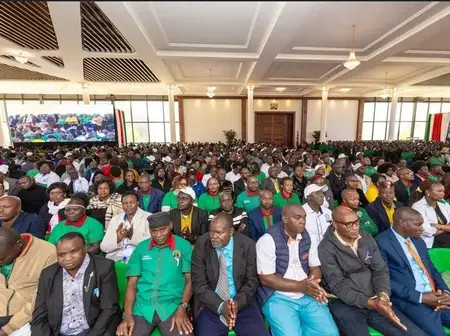
Teachers’ unions have strongly criticized the new Standard Hiring Arrangement (SHA), arguing that it is detrimental to educators and undermines their working conditions.
In a formal statement, the unions expressed serious concerns over how SHA was developed and its potential negative impact on teachers’ welfare and professionalism.
According to union leaders, one of the main issues with SHA is that it shifts responsibility for hiring and payment from the government to school boards or individual schools.
They argue this change could lead to delays in salary payments, inconsistent hiring criteria, and reduced job security for teachers. The uncertainty created by the arrangement, they say, threatens the stability that teachers have long relied upon.
Another area of concern is the lack of clarity in contract terms under SHA. Unions point out that many critical details—including promotion pathways, leave entitlements, evaluation processes, and renewal protocols—are either vague or entirely omitted.
This lack of transparency, they claim, increases the risk of unfair treatment and arbitrary decisions by school administrations.
Teachers also fear that SHA could foster inequality among educators, particularly between those in well-resourced schools and those in more remote or underfunded areas.
According to union representatives, schools with better funding and infrastructure may offer superior contracts and benefits, while other schools may be forced to operate under less favorable terms, further exacerbating regional disparities.
In their statement, the unions called on the government to engage in meaningful dialogue with teachers and to revisit the SHA framework. They have urged amendments to ensure that employment terms are fair, predictable, and enforceable.
Any hiring arrangement, they insist, should guarantee timely payment, standardized evaluation, equitable treatment, and clearly defined working conditions.
The unions have also announced plans to mobilize their membership and possibly pursue legal or industrial action if their grievances are not addressed.
They believe that without significant revisions, SHA could harm not only teachers but also the quality of education delivered to students.
As the debate unfolds, stakeholders including policymakers, school administrators, and teacher representatives will be watching closely to see whether the government will respond with adjustments or defend the current SHA model.
The outcome, many agree, will have lasting implications for the education sector and the morale of those tasked with nurturing the country’s future.





